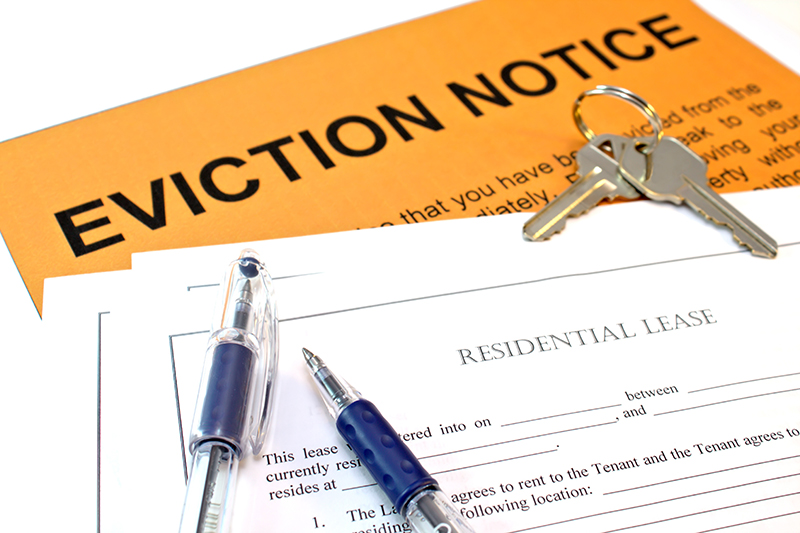Dealing With an Eviction in Utah

Every tenant has certain rights in regard to the property they rent. Thus, when they face eviction from a landlord they are not without legal recourse. Landlords must successfully prove their case in order to carry out a legal eviction. Getting help from a real estate attorney is the best way to challenge a landlord's case. Under Utah law, tenants have several defenses to an eviction action.
The General Eviction Process
The only way a landlord can lawfully evict a tenant is to file an unlawful detainer lawsuit. The landlord must win this lawsuit in front of the court for the eviction to have legal validity. Tenants must be notified (according to court rules) of this process prior to a court hearing. There are also situations where the landlord must allow the tenant to remedy the situation before taking legal action.
Under Utah Code Ann. § 78B-6-802(1)(c)), a tenant who fails to pay rent must be given a three day notice to "pay or quit." This means that the tenant must be given the opportunity to "cure" the default in payments before the landlord can take the matter to the court. If the tenant pays within this time period, the landlord is barred from filing a suit in court.
A similar compliance period is provided for other violations of a residential lease. A property owner must allow the tenant three days to fix the violation or to vacate the premises. Only when a tenant remains without complying can the landlord move to evict the party.
If a tenant remains in violation after the landlord's notice a lawsuit can be filed. The suit must be filed in the county where the property is located. Typically, a landlord will file a complaint (stating why the eviction is required) and a summons which requires the other party to appear in court. A tenant can file an answer to the complaint to assert any defenses that may be available. If the parties cannot negotiate a settlement prior to the court date they will both appear before the court to prove their cases.
Defenses for Tenants
There are a number of defenses a tenant can use to stop an eviction. If a tenant feels he or she is the subject of a discriminatory eviction a defense is available under the Utah Fair Housing Act. Discriminatory action is also prohibited under the federal Fair Housing Act. To prove this defense the tenant must show that the main purpose of the eviction is to discriminate based on race, familial status or religion.
A tenant who is accused of not paying rent may defend by showing that rent was paid. The tenant will need proof that he or she paid rent within the three day period or prior to the due date. For this reason it is important to regularly request rent payment receipts to establish a payment history record.
The landlord's failure to maintain the rental property is another possible defense. The law in Utah includes the "Utah Fit Premises Act." These laws make it mandatory for a landlord to keep the rental premises sanitary and habitable for tenants. The landlord is required by law to fix the deficiencies or the tenant can choose to hold back rent. If the lawsuit against the tenant is for non-payment of rent, the tenant can use this defense if there has been notice and the unfit conditions are verifiable.
Suits for lease violations can also be challenged. When a landlord has notified the tenant of a violation and the tenant has taken steps to correct it a lawsuit should not be filed. If the landlord files a lawsuit anyways, the tenant can present proof of the correction within the required period of time. Doing so negates the landlord's basis for eviction.
Finally, a tenant can fight an eviction lawsuit by showing that the landlord did not follow the correct filing process. For example, if the landlord does fails to comply with the legal notice requirements the case may be dismissed. However, if the underlying cause of action is not resolved, the landlord may simply file the suit again.
If you need help with the eviction process, contact T.R. Spencer Law Office. Successfully filing an eviction or defending against one requires strict adherence to the Utah Code. Contact a real estate lawyer for assistance at (801) 566-1884.